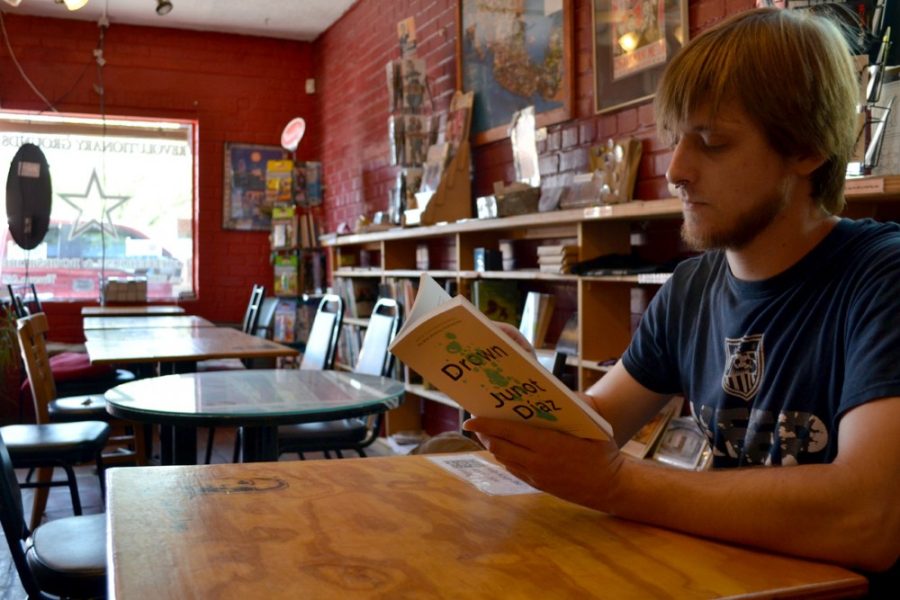Revolutionary Grounds, a small coffee shop and bookstore on Fourth Avenue, is one of Tucson’s hot spots for controversial literature.
Within its walls, guests can choose from a wide selection of counter-normative books, ranging from topics such as intersections of race and sports in America to the bone-chilling short stories of Junot Díaz.
In times of censorship within Tucson’s own educational community, Revolutionary Grounds is fighting to keep the spirit of marginalized opposition alive.
In January, Tucson Unified School District obeyed orders from State Superintendent John Huppenthal to cut certain curriculum, including books that “promote the overthrow of the United States government.” Those books apparently comprised most of the curriculum of TUSD’s Mexican American Studies classes, so much that the curriculum was suspended mid-semester.
Huppenthal’s public statement on the matter, issued in January, revealed that he was shocked at TUSD’s initial refusal to change the MAS curriculum.
The statement cited the MAS program’s website, saying that it “is in clear violation of A.R.S. § 15-112 A (3),” on the grounds that “the Mexican American Studies Department was formed specifically to enhance the academic success of Latino students.”
Tony Diaz is the leader of Librotraficantes and founder of Nuestra Palabra, an organizations that promotes Latino literature.
“The boiling point was actually canceling the classes and quantifying the books,” he said to the The Colorado Independent in January. “What really offended us down to our soul — they took the books out of the classes in front of the kids and boxed them up, and that was such a cultural offense, we felt we had to do something.”
Revolutionary Grounds’ library contains many of the books stripped from TUSD’s classrooms, including “The Devil’s Highway: A True Story” by Luis Alberto Urrea.
“The Devil’s Highway follows a group of illegal immigrants crossing the border. It seems bizarre to me that it was banned in the first place, considering where we are, until you realize that they’re trying to hush up those voices,” said Colin Davies, an employee who has been working at Revolutionary Grounds’ for two years.
According to Davies, Revolutionary Grounds is fighting to keep those voices from being quieted.
“We want to be able to support free thinking and allow people to understand what’s going on in their state,” Davies said. “Providing people with banned books that they might not be able to get otherwise is one way we can do that.”
But Revolutionary Grounds can’t do that alone. Just over three weeks ago, the store began an IndieGogo campaign with a hefty goal of $50,000.
“We’re trying to keep this place open,” Davies said. “As it is right now, our store is falling apart.”
With almost 30 days left on the campaign, Revolutionary Grounds is asking for the Tucson community’s support in raising funds to keep the store open and continue to spread free knowledge.
Without places like Revolutionary Grounds, students looking for literature that reflects their own heritage or beliefs might have to look a bit further — not only for those books, but also for a supportive community built around them.
For more information on the “Keep the Revolution Going!” campaign, visit Revolutionary Grounds’ IndieGoGo page online at indiegogo.com/projects/keep-the-revolution-going.
_______________
Follow Ian Martella on Twitter *@DailyWildca*t









